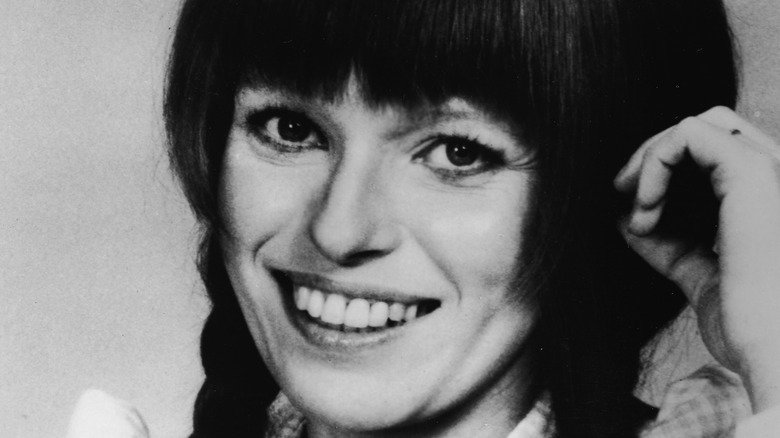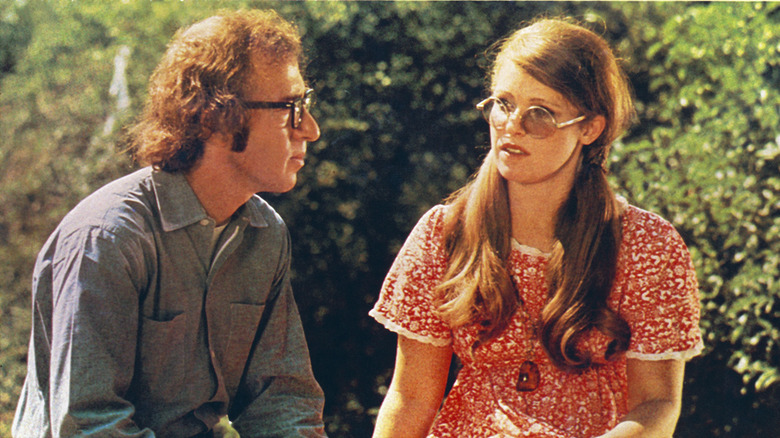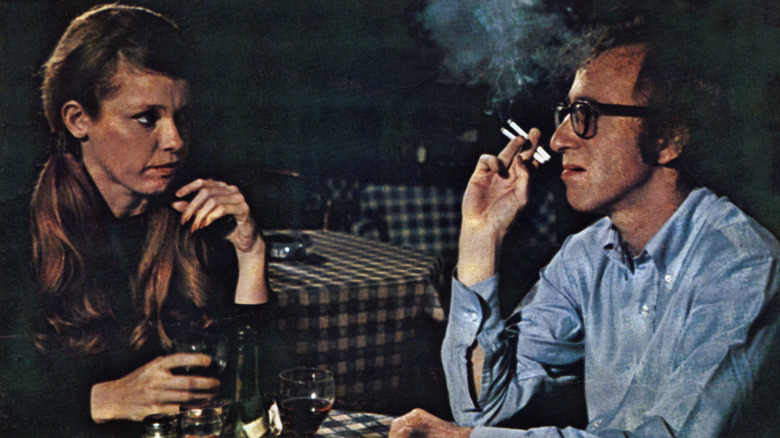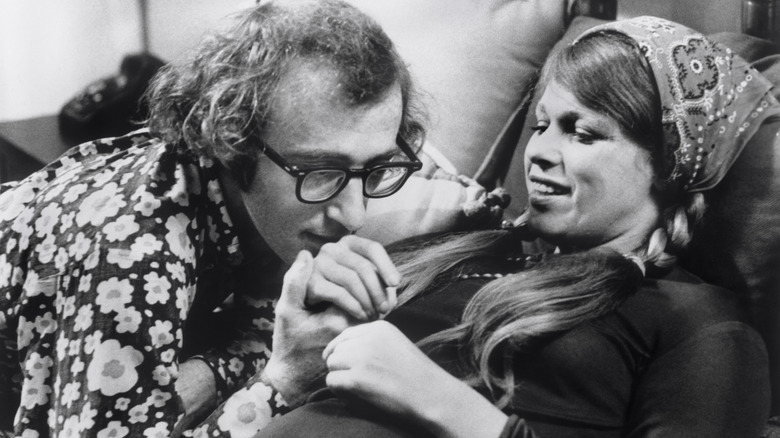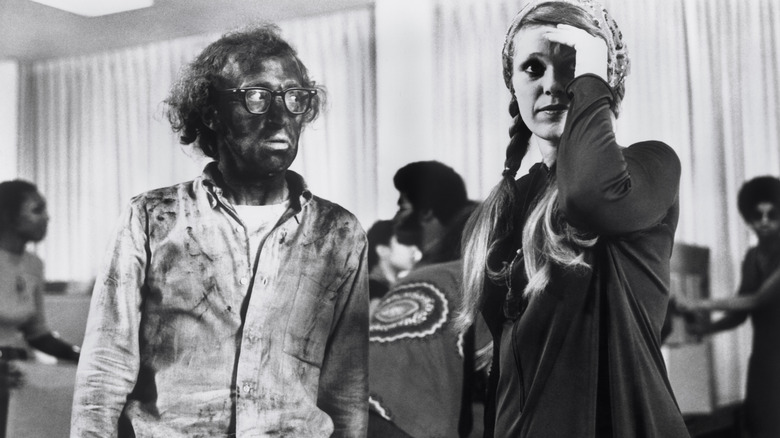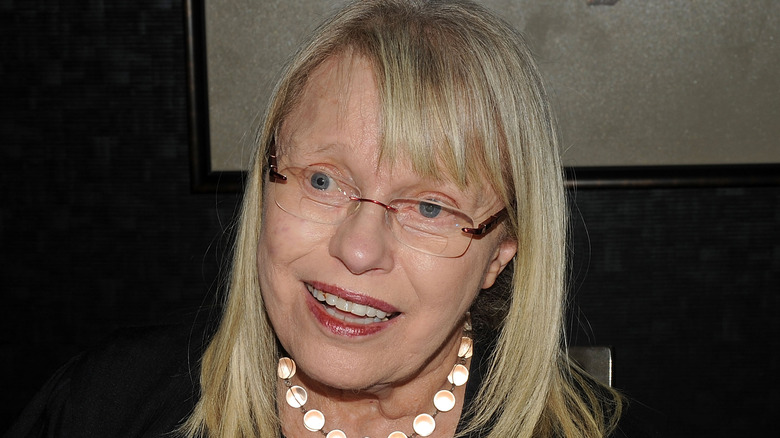The Sad Truth About Woody Allen's Marriage To Louise Lasser
Louise Lasser is one of the most important women in the world of comedy, having worked as an actress, TV writer, and performing arts instructor. While she's been entertaining audiences for decades now in a wide variety of projects, she's most well-known for her role as the title character in the 1970s soap opera satire, "Mary Hartman, Mary Hartman." This darkly comic show follows an ordinary housewife who contends with the bizarre and surprising deaths that occur around her on a regular basis. "Mary Hartman, Mary Hartman" only lasted for one season, but it has been praised for its outré humor and social commentary that remains fresh today.
Lasser is also known for her marriage to acclaimed actor, screenwriter, comedian, and film director Woody Allen. During their marriage, she appeared in several of Allen's early films, including 1966's "What's Up, Tiger Lily?," 1969's "Take the Money and Run," and 1971's "Bananas." While the two have remained amicable following their divorce, they had a tumultuous relationship.
Louise Lasser meets Woody Allen
In her interview with The Toast, Louise Lasser explains that around the time that she met Woody Allen, she was taking some time away from school and was going through a dark time in her life, explaining, "I'm 21 years old, or 20, I'd just started therapy, and I don't know who I am or what's important ... I was just a young actress, living with my parents, just started therapy. And was probably pretty depressed in my life by then."
However, it seemed that Allen's arrival into her life was a welcome ray of light for her. When Lasser met him, she was dating a friend of his and he was already married to someone else, but their romantic relationships at the time weren't enough to quell their chemistry, which developed instantly (per The Toast). "So, I met him, and it was so clear the whole night the four of us were there, and neither of us are talking to anyone else, do you know what I mean? We know what's going on and it's like you feel nervous about it because it's like you can get into trouble for this," she told the outlet.
Their relationship grows
Of course, the bond that sprang up between Louise Lasser and Woody Allen only continued to strengthen. According to The Toast, Allen later called up Lasser and invited her to accompany him to buy records. But it wasn't just their shared taste in music that brought them together — Lasser and Allen's friendship soon got to the point when they connected on a much deeper level that went beyond common interests. "We really understood what the other was saying. Like I'd barely heard the word "existentialism," but when he and I talked it was like I already knew about it," Lasser said.
While Allen was still married at the time of his blossoming relationship with Lasser, it wasn't long before he left his wife to be with this new woman, with whom he developed a particularly quirky bond. Lasser describes their deepening relationship as follows (The Toast): "This was the time when it was very fashionable to be Zelda Fitzgerald and Scott Fitzgerald. You're familiar with them? These were our references in some strange way. Then it just developed, and then he got divorced. In a very short period of time, this happened."
Marriage
During their marriage, Woody Allen's career in the film industry was starting to take off. However, this didn't intimidate Louise Lasser, who at the time was not as well known as her husband. In fact, she found it inspirational to be married to someone as talented as Allen, telling Interview Magazine, "I love his work. That relationship was a very influential relationship, on every level. It's interesting to see that. I'll forever be influenced by his work. A lot of my best work comes from his work. Some meaning and some not even meaning to."
While Lasser's marriage to Allen had a positive effect on her creatively, it was a difficult time for her personally as not only did her parents break up around the time they got married, but her mother also died from suicide (via The Toast). It was a period that, although very dark, Lasser didn't fully process until years later, telling the outlet that "it's more traumatic now than it was then. I guess you're not thinking then, do you know what I mean?"
If you or anyone you know is having suicidal thoughts, please call the National Suicide Prevention Lifeline by dialing 988 or by calling 1-800-273-TALK (8255).
Divorce
Louise Lasser and Woody Allen eventually divorced after only a few years of marriage, but the dissolution of their relationship took longer; Lasser tells The Toast that they remained close even as the marriage began to fall apart, and that their romance didn't completely end until sometime after they officially got divorced. In fact, even after the two had split, Allen cast her in his films "Bananas," "Take the Money and Run," and "Everything You Always Wanted to Know About Sex."
Lasser's career started to take off after her divorce from Allen, but the two remained on good terms, and Allen's positive influence on Lasser stayed with her for years afterward. She told The New York Times, "He's been a tremendous influence — but it's been the influence to make me be me. He's always said to me, 'If you just go out there and be yourself and do what it is you do comfortably, that's going to be terrific.' He gave me that kind of confidence. I remember the day he said, 'I do jokes. Your comedy is attitude.'"
Louise Lasser's later career
Louise Lasser has had a steady career in the entertainment industry ever since her marriage to Woody Allen ended. "Mary Hartman, Mary Hartman" remains the project that she's most famous for today — it garnered her a Primetime Emmy Award nomination — but she has continued to appear in a wide variety of TV and film projects. She's been seen in the sitcom "It's a Living," Todd Solondz's "Happiness," Darren Aronofsky's "Requiem for a Dream," and several episodes of Lena Dunham's "Girls."
While Lasser and Allen's careers have gone in very different directions following their marriage, they still remain in contact, albeit far less than in previous years. Lasser told The Toast, "We speak not that often, but he usually invites me to come at Thanksgiving. They live a block away. And I've gone a few times. But it's all different. And your life goes different ways. It was such a strong part of my life, so public, in a sense, that you don't just put it away, like, 'oh, when I went out with so-and-so.'"
